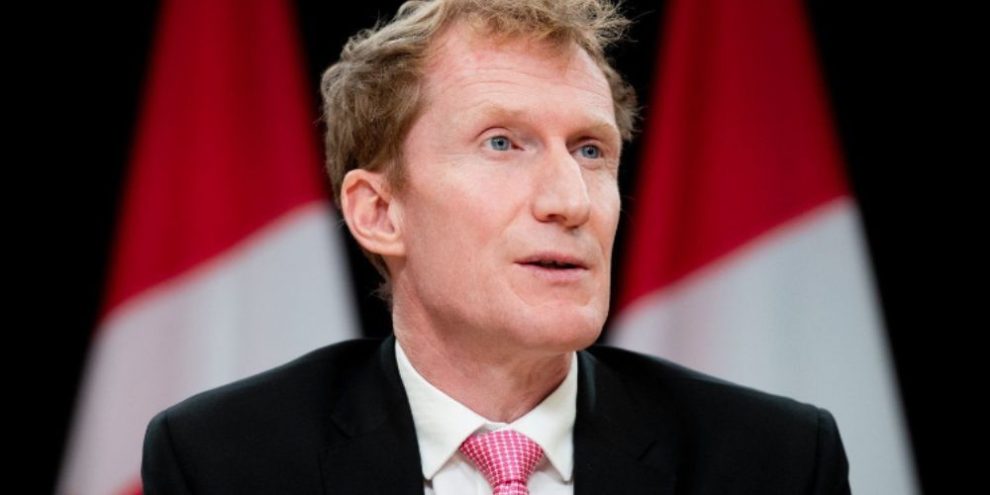
By Mia Rabson in Montreal
files - Barrie 360
New visas for international students will be slashed by more than one-third this year as the federal government tries to slow a rapid increase in temporary residents that has put immense pressure on Canada's housing system.
Immigration Minister Marc Miller announced a temporary cap on new student visas at a three-day cabinet retreat in Montreal. Affordability and housing are top items on the agenda, with a growing focus on the role record immigration has been playing in both.
Miller said the cap on new student visas will be implemented for this year and next. The number of new visas handed out this year will be capped at 364,000, a 35 per cent decrease from the nearly 560,000 issued last year. The number for 2025 will be set after an assessment of the situation later this year, he said.
"In the spirit of fairness, we are also allocating the cap space by province based on population, such as that some provinces will see much more significant reductions," Miller said.
Ontario, which has accounted for a larger share of growth in international students, will see its allotment of new visas cut in half.
Barrie 360 reached out to Georgian College to see how the cut will impact the school.
"Georgian is working closely with government to understand how these policy changes will be implemented in Ontario," Kevin Weaver, president CEO, Georgian College said in an email statement. "Regardless of the implementation process, there will be an impact for Georgian. We will continue to do what’s in the best interest of our students and we will update the Georgian community about the impact of today’s announcement as we learn more.”
As of last September, Georgian said there were 12,000 full-time students in total at its seven campuses, of which 6,300 were international students.
In October, Georgian College announced it would work with EY Canada to develop a student housing strategy.
“The project, focused on student housing in Barrie, begins this month with data gathering and consultations with key constituent groups, including students,” the college said in a news release on Oct. 3, 2023. ” The full project will take place over the next six months to analyze student demand, develop options and recommendations, assess the economic impact and ultimately result in a housing strategy for the college.”
The cap will apply only to post-secondary undergraduate students, not those seeking visas for master's programs, doctoral degrees or elementary and high school students.
The minister hopes it will give federal and provincial governments time to tackle problems in a system that he says is taking advantage of high international student tuition while providing, in some cases, a poor education.
"It's a bit of a mess," he said of the student visa system. "It's time to rein it in."
More than 900,000 foreign students had visas to study in Canada last year, though the visas are issued for three years at a time, so not all of them were newly admitted to Canada in 2023.
The total number of foreign students is more than three times what it was a decade ago.
The federal government issues the visas but the provinces approve schools to accept international students. Each province has its own criteria for deciding which schools can be designated for international students.
Miller has had harsh words for what he calls unscrupulous schools springing up to take advantage of the high tuition fees paid by foreign students without offering a solid education in return.
In some cases the schools are a way into Canada for students who can parlay a student visa into a permanent residence.
"It is not the intention of this program to have sham commerce degrees or business degrees that are sitting on top of a massage parlour that someone doesn't even go to and then they come into the province and drive an Uber," Miller said. "If you need a dedicated channel for Uber drivers in Canada, I can design that, but that isn't the intention of international student program."
Tuition freezes and provincial cuts to funding for universities and colleges have pushed many institutions to rely heavily on tuition from international students, and to recruit more of them to keep their operating funds balanced. In 2022, 70 per cent of all tuition paid to schools in Ontario came from international students.
Miller said the government will also bar students in schools that follow a private-public model from accessing postgraduate work permits as of Sept. 1.
And in a few weeks, open work permits will only be available for the spouses of students enrolled in masters and doctoral programs, as well as professional programs such as medicine and law.
Miller warned provinces in the fall he expected them to take action to stop unethical school operators from taking advantage of the visa program or he would implement caps they may not like.
He said Monday that some provinces have started to make moves, but in most cases it was not fast enough. He said the federal government will work with the provinces.
Mike Moffatt, an economics professor and expert on housing from Western University, is speaking to the cabinet Monday about the housing crisis. He welcomed the temporary cap, noting that few things are contributing more to Canada's housing crisis than explosive growth in temporary residents.
"In some cities it's making a massive difference," he said.
Moffatt said not only are thousands more people competing for lower-cost rentals, driving up the price, investors are also buying properties to turn into student rentals, eating into the supply of single-family homes for first-time buyers.
"It's good to see the federal government start to bring some rationality back to the number of international students," he said. "We need to bend the curve and allow the housing market to catch up to our population growth."
Michael Sangster, CEO of the National Association of Career Colleges, said in a statement Monday the organization supports the move to "bring stability to the international student system."
But Sangster is concerned that Miller said Canada has a preference for graduate students over those in career colleges that train, for example, health-care workers, tradespeople, early childhood educators and truck drivers.
He fears Ottawa is "scapegoating" registered career colleges as being the root of the international student problem and wants to see more data to show exactly where the problems lie.
Banner image: THE CANADIAN PRESS/Spencer Colby
This report by The Canadian Press was first published Jan. 22, 2024.





